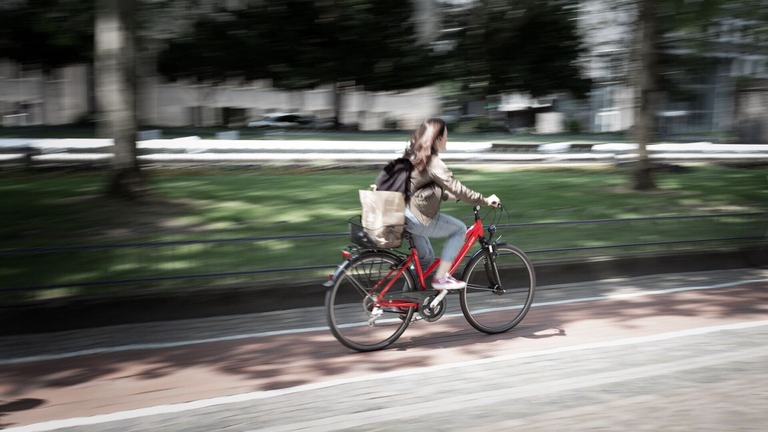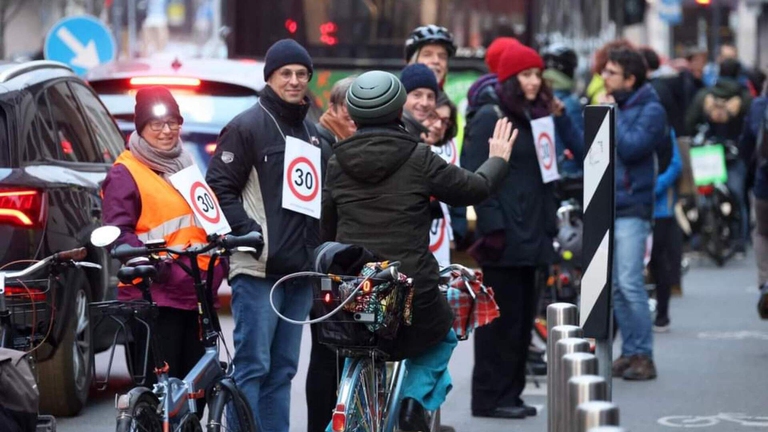https://www.lifegate.it/la-velocita-in-strada-fa-la-differenza-ma-non-per-il-ddl-salvini
- |
Also giving space to the voice of the associations that deal with active and sustainable mobility, we have already reiterated from these pages that to really stop the road massacre in Italy we must first of all do everything moderate the speed of vehicles.In fact, this is it the primary cause of the severity of collisions in our country, a factor that we cannot ignore when dealing with the topic of road safety.So let's talk about collisions, that is, predictable clashes, the order of the day, whose dynamics and causes we know well, not unexpected "accidents".Yet, despite the scientific evidence and the number of victims, the traffic moderation in the bill proposed by the Minister of Transport Matteo Salvini is neglected and at the same time active mobility is attacked and weakened.For this reason, once again the associations come together and make themselves heard, to ask Parliament and the Government for an overall revision of the Highway Code, starting from an accurate analysis of the proposal which they define as "ineffective and harmful".

Salvini's bill, "ineffective" and "harmful" for active mobility
A bill for road safety is ineffective on the one hand, because it does not intervene on speed which is the main cause of the most serious accidents in cities and indeed limits the use of speed cameras;and on the other hand harmful, because it actually takes steps backwards on the existing rules for sustainable mobility, limiting the possibilities of creating cycle paths, restricted traffic zones and regulated parking.This, in summary, is the reading of the bill given by the associations of the #città30subito platform that brings together Legambiente, Fiab-Italian environmental and bicycle federation, Asvis, Kyoto Club, Salvaiciclisti, Fondazione Michele Scarponi, Amodo, Clean cities campaign and which in recent months has promoted one bill, on the model of a similar measure already adopted in Spain, to promote road safety in cities moderating speed and regenerating public space.The request to the government and Parliament, if we really want to save human lives, is to establish a 30 km/h limit in urban centres, For city more people-friendly and to withdraw the changes on sustainable mobility.

Minister Salvini's commitment to road safety is confirmed by the reform presented which intervenes above all on sanctioning part for those who abuse illegal substances while driving but it has a great absentee:moderation of speed.It is important to combat those who drive under the influence of alcohol and drugs, knowing that these behaviors are the cause of four percent of accidents (6761 out of 151,875 total, according to the Ministry of the Interior), but in addition to this it is good to remember that the the main cause of accidents, as the first cause or contributory cause which aggravates others, is excessive speed (Istat 2021), on which incisive interventions are lacking in the legislative decree presented to the Council of Ministers, which will indeed make installing speed cameras is more difficult, a precious tool for moderation and speed control especially in the city.
According to the associations of the #città30subito platform, Minister Salvini's bill will not increase road safety, especially in cities, Where More than 70 percent of all road accidents occur. To effectively protect the safety of people, starting from the most vulnerable categories such as pedestrians and cyclists, the maximum speed on urban roads must be reduced by law.Otherwise, the very objective that the decree law sets itself will be unattainable:significantly reduce the victims, with the hope of getting as close as possible to zero road deaths by 2050 (“Vision zero”).
As the associations write, the bill presented by Minister Salvini makes the use of light means of transport such as scooters more difficult, "without significantly affecting the real causes of accidents and weakens tools introduced in 2020 such as cycle lanes, incomprehensibly limiting their use".Intervening in a repressive manner on micromobility users, under the pretext of wanting to bring order to the regulation of these new road users, has no impact on the current road massacre and risks distancing people from essential choices to stop the increase in road deaths in urban areas, in which Italy holds the sad record in Europe.
Attacks against cycling and sustainable mobility
The bill also restricts the ability of municipalities to manage urban mobility, inserting ministerial regulations that reduce their autonomy and complicate the already complex administrative procedures to introduce cycle infrastructures, restricted traffic zones, electronic controls and tariff zones to disincentivize the use of 'car.The draft decree in fact implements one worrying "reverse" on the rules relating to urban cycling updated in 2020 predicting limitations for the construction of the cycle lane and similar limitations for the creation of a two-way cycle path, theelimination of the “advanced house” with all its characteristics and its replacement with the "cycle settlement area" and a notable weakening of the cycle road.
As for the newly introduced obligation to overtake bicycles at least 1.5 metres of lateral distance, this immediately becomes useless as it will only be mandatory “where road conditions permit”, consequently motor vehicles will be able to overtake bicycles even at a shorter distance whenever there is not enough space on the road to respect the one and a half metre.
The reference to future ministerial decrees and regulations for the definition of new rules for the fundamental levers of sustainable mobility suggests further tightening, for example the hypothesis of extending the obligation to wear a helmet, license plate and insurance (proposed for scooters) also to people who choose bicycles, thus discouraging them.
The associations gathered in the #città30subito platform therefore ask the government and Parliament to proceed with the development of a overall review of the Highway Code and the annexed and connected rules on the outline of the proposed law City 30 presented last May in Bologna and on greater incentives for active mobility.
